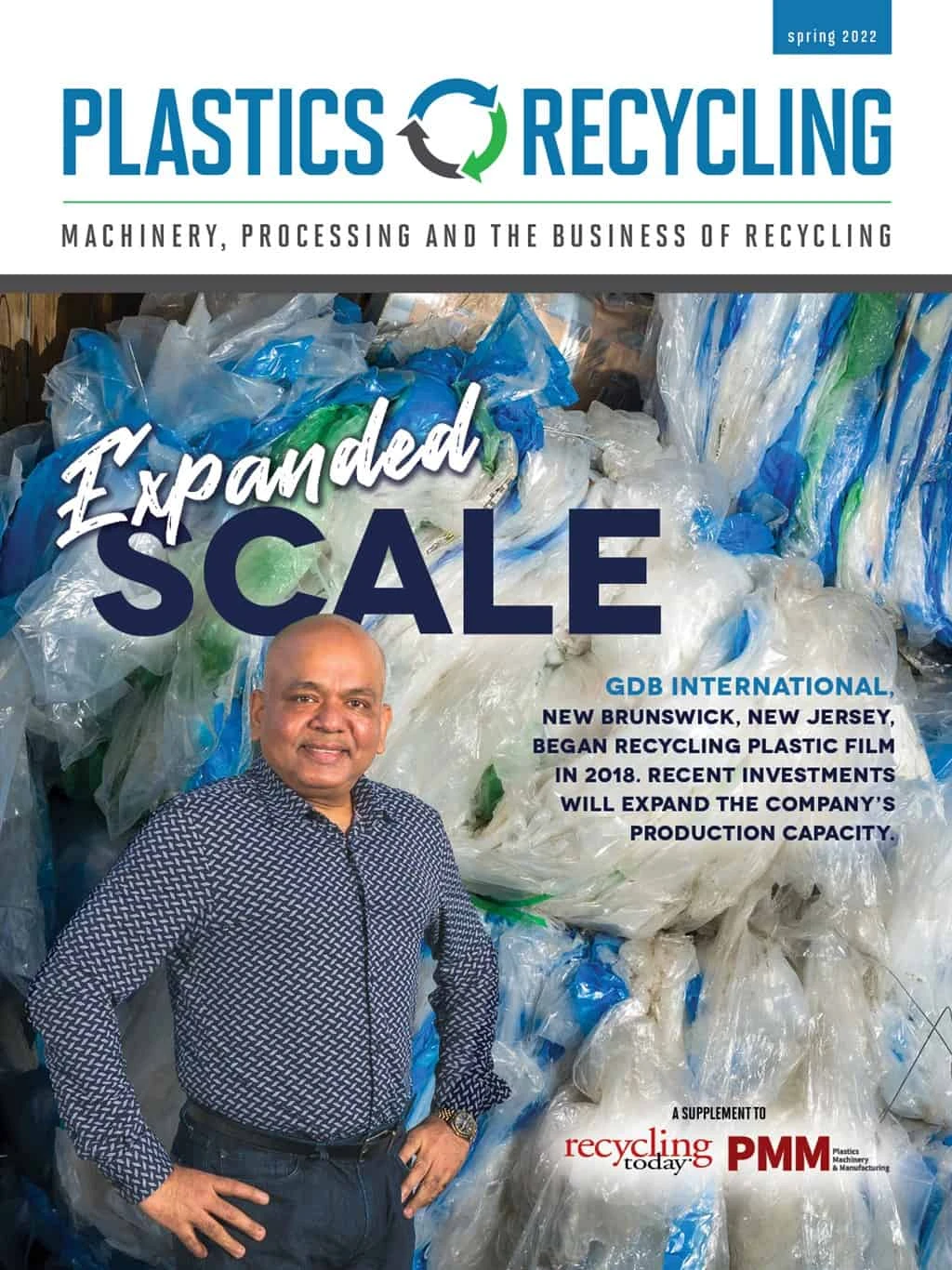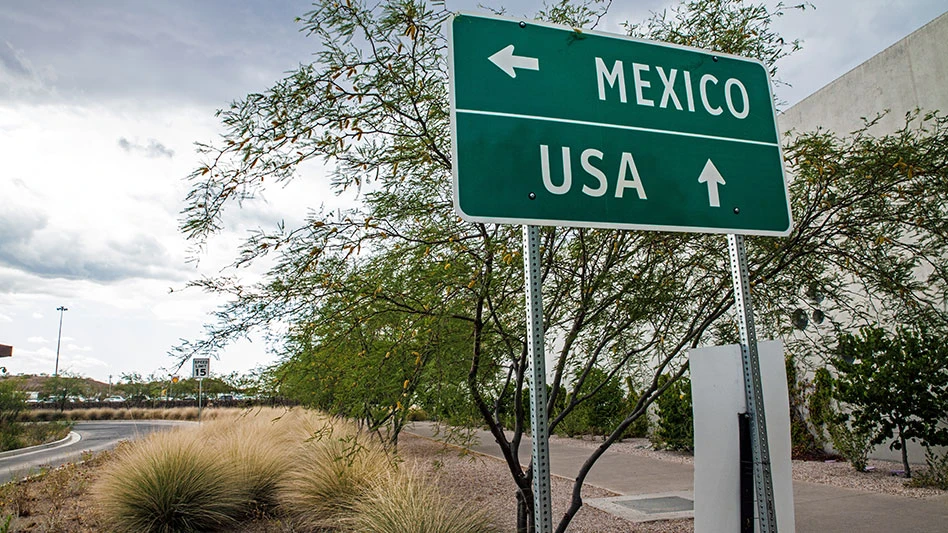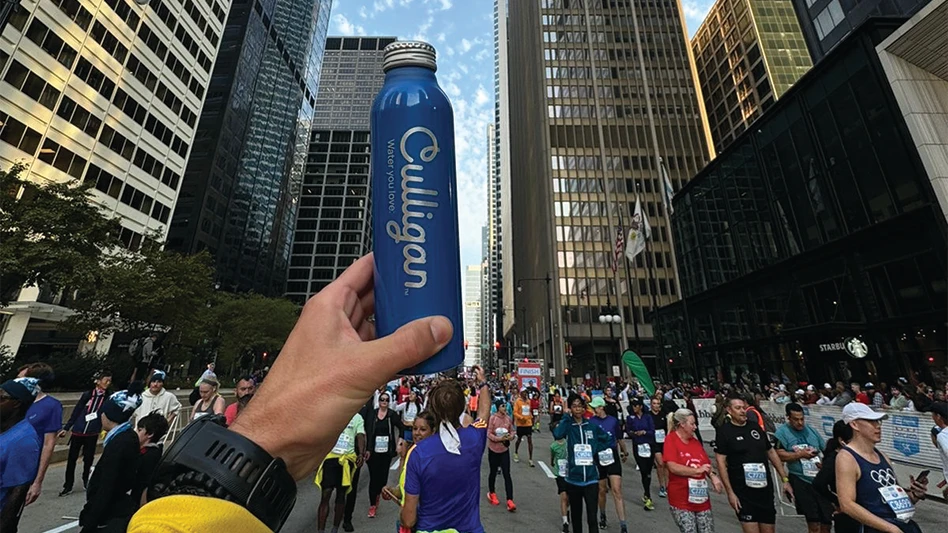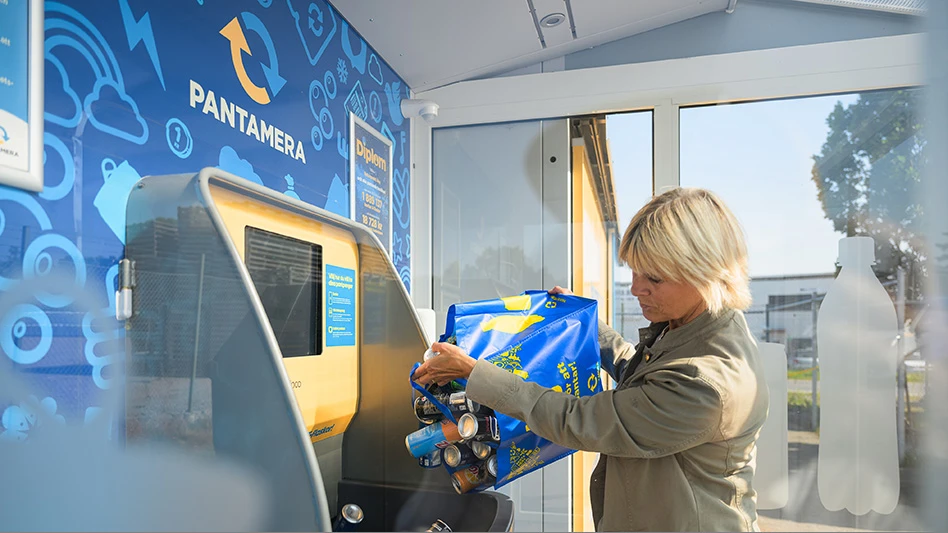An ambitious plan to eliminate unnecessary packaging and drastically boost recycling has found its champion in a sustainability professional who has had stints with MORE Recycling and the Plastics Division of the American Chemistry Council.
Emily Tipaldo heads the U.S. Plastics Pact. Its goal is to unify stakeholders throughout the plastics value chain to rethink the way packaging is designed, used and reused.
Its “Roadmap to 2025” strategy includes four 2025 targets: eliminating unnecessary packaging; making all plastic packaging reusable, recyclable or compostable; recycling or composting 50 percent of packaging; and achieving an average of 30 percent recycled or bio-based content in packaging.
Tipaldo invites everyone to take a seat at the table.
How is the U.S. Plastics Pact different from prior initiatives? There are three main elements of the U.S. Pact that set it apart. One, upon joining the Pact, U.S. Pact Activators are committed to working toward the four targets on an aggressive timeline. This sets common ground for all.
Next, Activators must report progress toward each of the four targets on an annual basis. The reported data is published in aggregate to demonstrate the progress of the U.S. Pact as a whole. This establishes transparency and accountability unlike any other voluntary effort in the U.S.
Finally, the U.S. Pact is providing national leadership on the creation of a circular economy for plastic packaging.
Sponsored Content
Labor that Works
With 25 years of experience, Leadpoint delivers cost-effective workforce solutions tailored to your needs. We handle the recruiting, hiring, training, and onboarding to deliver stable, productive, and safety-focused teams. Our commitment to safety and quality ensures peace of mind with a reliable workforce that helps you achieve your goals.
Why will it succeed? The problems have been identified, and the cards are on the table. There is no longer an opportunity to hide behind a lack of understanding of the baseline or needs. Between the U.S. Pact’s “Baseline Report,” the Ellen MacArthur Foundation’s “Global Commitment Progress Report” and World Wildlife Fund’s “ReSource Plastic Transparent Report,” we know what we are up against. … Transparency will continue to drive the U.S. Pact and Activator actions.
What can we learn from countries with better recycling track records? While there are countries with better track records in recycling their plastic packaging, it’s important to dig into the reasons why and remember that at the heart of it, we’re facing many similar challenges globally. … Global subsidies for oil and gas extraction make virgin plastic extremely cost-effective, and landfilling is relatively cheap. The costs of the collection and reprocessing required to transform waste plastic into quality feedstock are often not economical.
Policy has a role to play, which we’ve learned from other countries. Extended producer responsibility (EPR) can assist with the funding required to collect and sort recyclables. Deposit return systems (DRS) also incentivize recycling, enable the collection of quality material and generate postconsumer recycled content supply. The U.S. Pact supports both policies. The U.S. Pact needs EPR, DRS and postconsumer recycled-content mandates to realize our four targets.
How many organizations should be involved? Even though we have more than 100 Activators, there is always room at the table. Individual company or organizational actions and piecemeal activities alone will not get us any closer to a circular economy for plastics. … Most of the time, new members join because they have heard about the U.S. Pact at a conference, during a webinar or while reading a news article. There is likely someone reading this article right now who is doing innovative work with plastic packaging. How is your company taking steps to create a circular economy for plastics? We’d love to hear, and I encourage anyone who wants to close the loop on plastics to reach out to U.S. Pact staff at takeaction@usplasticspact.org so we can continue the conversation.
Get curated news on YOUR industry.
Enter your email to receive our newsletters.

Explore the Spring 2022 Plastics Recycling Issue
Check out more from this issue and find your next story to read.
Latest from Recycling Today
- Plastics association quantifies US-EU trade dispute impacts
- Nucor expects slimmer profits in early 2025
- CP Group announces new senior vice president
- APR publishes Design Guide in French
- AmSty recorded first sales of PolyRenew Styrene in 2024
- PRE says EU’s plastic recycling industry at a breaking point
- Call2Recycle Canada, Staples Professional expand partnership
- Circular Services breaks ground on north Texas MRF







